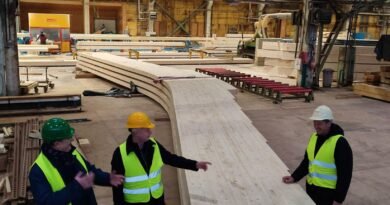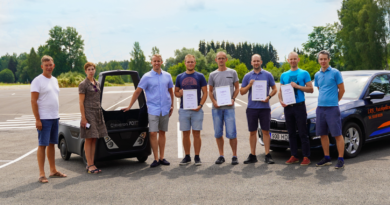Humanity in an automated future
In his TED talk Kevin Roose explained the value of person’s humanity in the times when it could be replaced by a robot.
Being a financial reporter who covered Wall Street and the stock market, once he heard about new AI reporting app. Basically, the app just needed some data, like a corporate financial report or a database of real estate listings. The app would automatically strip out all the important parts, plug it into a news story and publish it, with no human input required.
Wave of AI and automation fall onto workers of all kinds of industries, no matter how seemingly prestigious or high-paid their jobs are.
“We’ve been preparing for this automated future in exactly the wrong way. For years, the conventional wisdom has been that if technology is the future, then we need to get as close to the technology as possible. We told people to learn to code and to study hard skills like data science, engineering and math, because all those soft skills people, those artists and writers and philosophers, they were just going to end up serving coffee to our robot overlords”, – shared his insight K.Roose.
The truth is, that whatever hard skills the employee get, one can never be as effective as a robot. Rather than trying to compete with machines, people should be trying to improve their human skills, the kinds of things that only people can do, things involving compassion and critical thinking and moral courage.
K.Roose tells a story of Mitsuru Kawai, who sixty years ago started as a junior trainee at a Toyota factory in Japan. He made car parts by hand. And this was the 1960s, an era where the auto industry was undergoing a huge technological transformation. The first factory robots had started coming onto the assembly lines, and a lot of people were worried that auto workers were going to become obsolete. Mitsuru decided to focus on what, in Japanese, is called “monozukuri” — basically, human craftsmanship. He studied all the nuanced, intricate details of auto design, and he developed these kind of sixth-sense skills that few of his other colleagues had. He could listen to a machine and tell when it was about to break or look at a piece of metal and figure out what temperature it was just by what shade of orange it was glowing. Eventually, Mitsuru’s bosses noticed that he had all these skills that his coworkers didn’t, and they made him really valuable, because he could work alongside the robots filling in the gaps, doing the things that they couldn’t do. He kept getting promoted and promoted, and just this year, Mitsuru Kawai was named Toyota’s first-ever Chief Monozukuri Officer, in recognition of the 60 years that he spent teaching Toyota workers that even in a highly automated industry, their human skills still matter.
“If you, like me, sometimes worry about your own place in an automated future, you have a few options. You can try to compete with the machines. You can work long hours, you can turn yourself into a sleek, efficient productivity machine. Or you can focus on your humanity and doing the things that machines can’t do, bringing all those human skills to bear on whatever your work is”, – sum up K.Roose.




